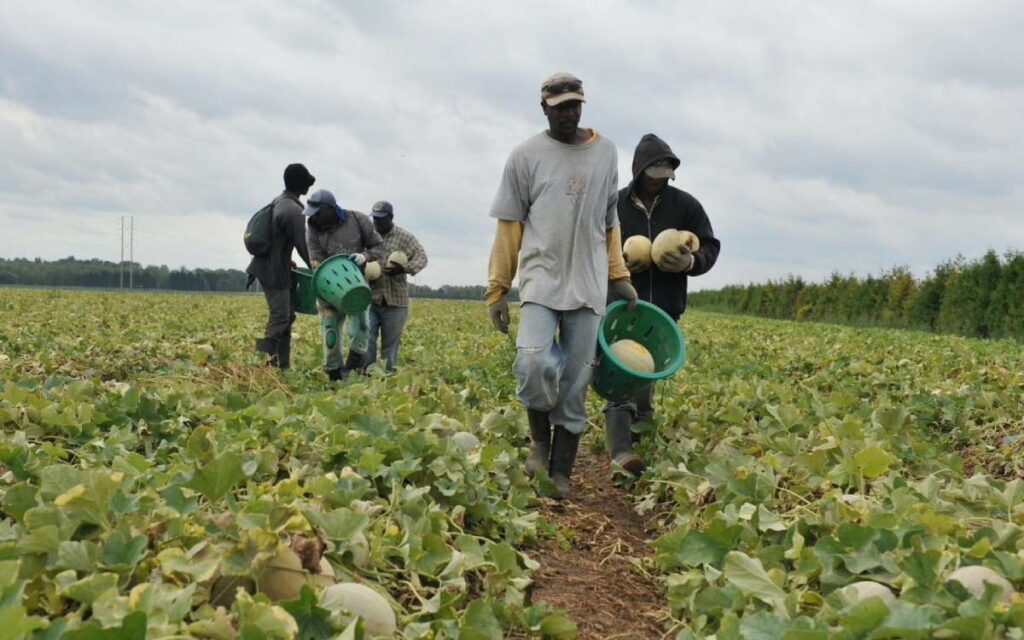
Each year, Niagara growers employ thousands of migrant workers to help fill the significant labour gaps in the local agricultural sector. The Foreign Agricultural Resource Management Services (F.A.R.M.S.) program connects seasonal workers with local producers. Photo credit: F.A.R.M.S.
As spring arrives and the days become longer and the temperatures slowly begin to rise, the Foreign Agricultural Resource Management Services (F.A.R.M.S.) is gearing up for the new growing season. Ken Forth currently serves as President.
“Our first 4,000 migrant workers have already arrived”, Forth shared in a recent interview with the Niagara Independent. “Pruning is well underway. In another month or so, we’ll be welcoming those coming to plant crops.”
Forth is optimistic that 2023 will bring an opportunity to recover from a number of difficult years. “The pandemic cost us thousands of dollars,” he said. “But it wasn’t just financial… a lot of people didn’t want to travel, and then, when things did open back up, we all had to use the ArriveCan app. They were very challenging times.”
“When you’re dealing with something that we did (Covid), it was originally a great unknown. I think everyone did a pretty good job trying to manage things, but it was a very frustrating experience for all of us,” Forth explained, “not just in agriculture, but for the world in general.”
As 2023 takes shape, Forth believes there is every reason to anticipate a normal season.
“Everything is progressing well… at this point, we are just hoping for no more shocks, because those can happen without warning, but hopefully not.”
“We’d like to see ideal weather conditions – not too hot, not too cold, lots of sun with some light rain on a consistent basis.”
In the current political environment, it can be commonplace for some people to become resentful of migrant labour, due to the belief that local citizens are losing access to jobs. Forth was adamant that this is not the case.
“Whatever industry you’re speaking of, be it restaurants or retail, or in our case, agriculture, there’s a huge labour shortage”, he explained. “As soon as Covid hit, the baby boomers began to retire in droves. There are literally not enough workers to keep things going. We’ve got to access new labour sources to keep pace.”
“Beyond that, the positions that our workers fill, in particular, are seasonal jobs – they’re not the kinds of positions people living in Canada will take to buy a home, keep a car on the road and raise their kids. It’s just not realistic to think you can do that in this economy.”
F.A.R.M.S. prides itself on keeping ‘Canada First’ in all its decisions, a mandate that has been central to its operations since the program launched 57 years ago.
“There’s always going to be people who will say they oppose any type of foreign worker program”, Forth said. “At the end of the day, however, the silent majority in the general public knows what we have to do to keep things moving.”
While it may be hard to believe, the 2023 Ontario harvest starts soon, and will continue right through the fall. “We’ll have greenhouse produce first… then asparagus, lettuce (by the first part of June), next we’ll get into some outdoor crops, and finally apples, other tree-fruit etc. in the autumn.”
“If everything goes as we are planning for, it will be a very rewarding season.”

Nick Redekop completed his Honours Bachelor of Arts Degree in Labour Studies at Brock University. He has previously served in municipal and federal politics. In his free time, Nick enjoys following sports, taking part in outdoor activities, and reading biographies. Nick resides in Niagara Falls








